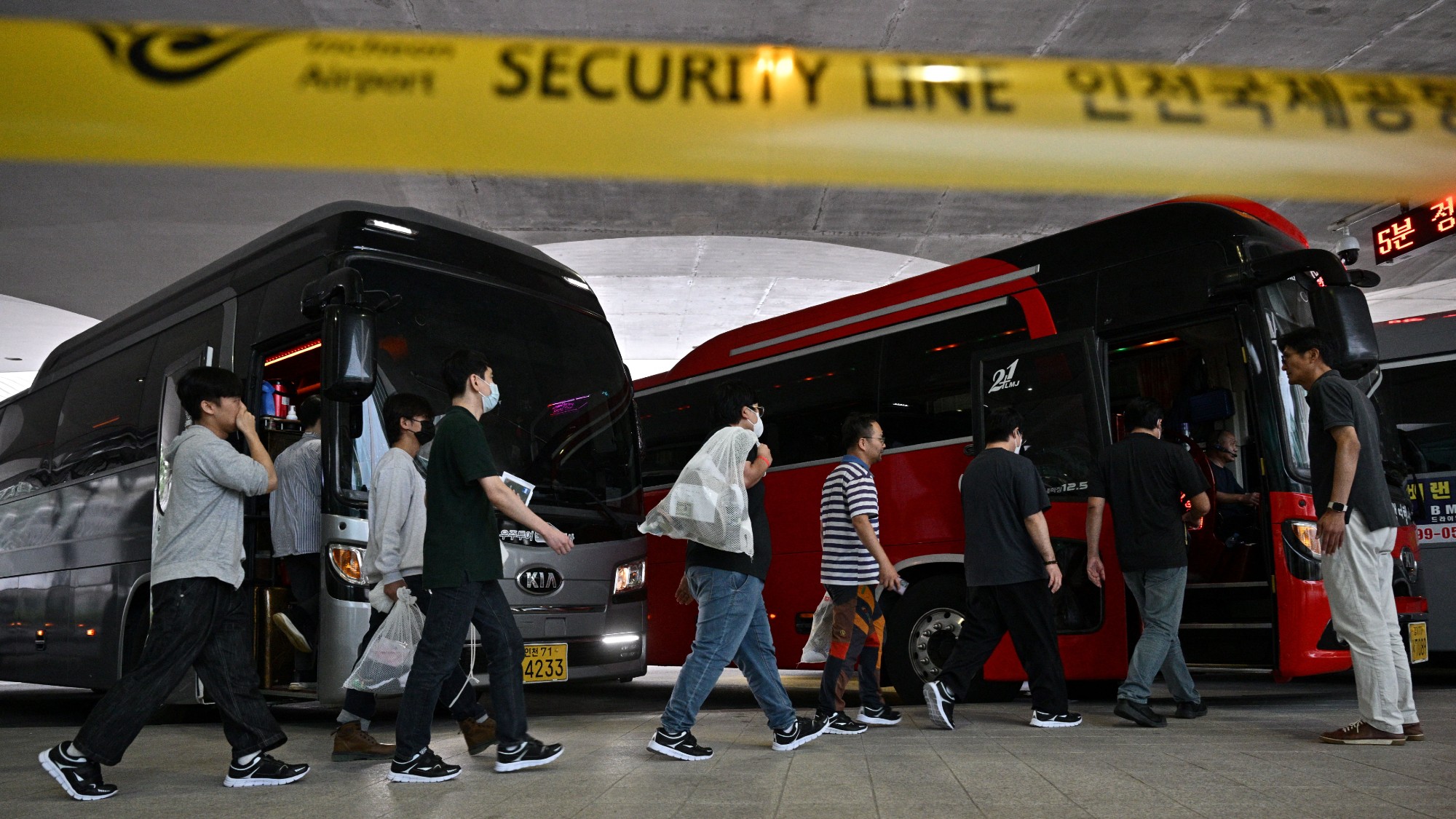Why is Trump backtracking on the Hyundai immigration raid?
Backlash threatens investment in US manufacturing


A free daily email with the biggest news stories of the day – and the best features from TheWeek.com
You are now subscribed
Your newsletter sign-up was successful
President Donald Trump’s anti-immigration efforts have bumped up against the limits of his “buy American” economic goals. His administration’s detention of hundreds of South Korean Hyundai employees in Georgia now threatens Trump’s attempts to encourage manufacturing investment in the United States — and Trump himself is trying to walk back the damage.
The president is trying to “limit the fallout” of the raid on the new Hyundai plant, said CNBC. Foreign companies investing in the United States should “bring their people of expertise for a period of time to teach and train our people how to make these very unique and complex products,” he said Sunday in a Truth Social post. “We welcome them.” The damage may already be done. While officials say that many of the workers detained in Georgia were working in the country on the wrong types of visas, the raid “could lead to other foreign businesses reassessing their workforces” in the United States, said CNBC.
The incident “provoked national outrage in South Korea,” said Axios, which had been expected to invest billions of dollars “building auto and battery plants,” as well as “restoring the U.S. shipbuilding industry.” Trump’s statement is a concession that America needs outside help to “make many of the goods at the heart of the administration’s push for foreign investment.”
The Week
Escape your echo chamber. Get the facts behind the news, plus analysis from multiple perspectives.

Sign up for The Week's Free Newsletters
From our morning news briefing to a weekly Good News Newsletter, get the best of The Week delivered directly to your inbox.
From our morning news briefing to a weekly Good News Newsletter, get the best of The Week delivered directly to your inbox.
What did the commentators say?
The Hyundai raid was a “massive own goal” by the Trump administration, said The Economist. The state of Georgia wooed the company to “breathe life back into agricultural counties” that were losing young people to cities with more and better jobs. This shift was good for local businesses: More than 20 new companies that sell “materials or component parts” to Hyundai have sprung up within an hour’s drive of the new plant. The raid will not end those efforts, but it could “make other companies more skittish” about investing in the United States.
South Korea “just learned a deep lesson about dealing with Donald Trump,” Allison Morrow said at CNN. Trump had recently met in the Oval Office with South Korea’s President Lee Jae Myung to tout the country’s $350 billion in investments in American manufacturing. The raid “landed like a slap” in Seoul’s face, with images of workers “shackled at the wrists, waist and ankles” being loaded onto buses. The lesson? “Any deal you strike with Donald Trump’s government comes with a giant asterisk.”
Attracting foreign investment is one of “favorite economic-development tools” for Republican governors, Ed Kilgore said at New York. “For some, it’s all they know how to do, other than cutting taxes, to create wealth.” The raid was an “embarrassment” to those efforts.
What next?
More than 300 of the workers have returned to South Korea by plane after a week in custody. Only one decided to stay in the United States after being “kept in cramped and unsanitary conditions” during the detention, said Time. Said Jang Young-seol, an engineer who worked for a subcontractor at the plant, “Nobody is going to stay and work when it’s like this.”
A free daily email with the biggest news stories of the day – and the best features from TheWeek.com
Joel Mathis is a writer with 30 years of newspaper and online journalism experience. His work also regularly appears in National Geographic and The Kansas City Star. His awards include best online commentary at the Online News Association and (twice) at the City and Regional Magazine Association.
